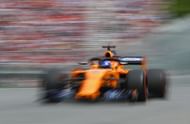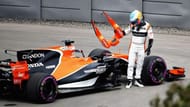“Fernando Alonso is the most complete driver in motorsports.” If you are a racing fan, chances are that you might have come across this statement more often than not. But for a driver who has won only two world championships, the last of which came a decade ago, does the assumption of the “complete driver” seem appropriate in an era where his rivals have won four each and are in a battle for the fifth. So what led to the premise of Alonso being regarded as one of the best drivers of the modern era at par with the likes of the legendary Ayrton Senna and Michael Schumacher?
Alonso has the gifted ability to extract performance from the car beyond its designed capabilities, a rare attribute only witnessed in the driving styles of Senna and Schumacher. His Ferrari years provide an ideal testimony of how he steered an underperforming Ferrari F2012 to second place in constructor’s championship. Even in the post-hybrid era of 2014, when Ferrari witnessed a podium draught, Alonso dragged the car to second position at the Hungary Grand Prix, prompting Toto Wolff, the Mercedes boss, to claim that “Fernando is a racing monster.” The 2014 Hungary Grand Prix is termed by many as one of Alonso’s heroic races alongside his other victories like the San Marino 2005, Malaysia 2012, China 2013 to name a few.
A close comparison of his performance in the underperforming Ferrari F2012 and Vettel’s initial 30 races at Ferrari gives one a clear picture of Alonso’s prowess of getting the maximum out of an average car, a trait that Sebastian Vettel lacks. His victory in the recently concluded Le Mans made one aware of his appetite for winning races which some had questioned after three frustrating seasons with McLaren.

The problem lies not in his appetite for winning championships; he is by far the most complete driver in modern day racing, but it is his attitude and past history that cautions teams from selecting him as their lead driver. Alonso has worked with some of the best teams in F1 such as Ferrari, Renault, McLaren and established engine manufacturer like Mercedes. His public fallout with Ron Dennis, the former McLaren boss, served as a great factor for Alonso not being considered for Nico Rosberg’s vacated seat at Mercedes in 2017. Mercedes had to suffer financially due to that incident in 2007 as they had an engine partnership with McLaren.
However, to have contested in 300 plus Grand Prix and to race for some of the top teams in Formula One he must have done something right to survive that long. A man who defeated the great Schumacher in his prime is fighting for midfield points as of now. It is the harsh reality of how complex the sport has become that the best driver is not necessarily the champion.

